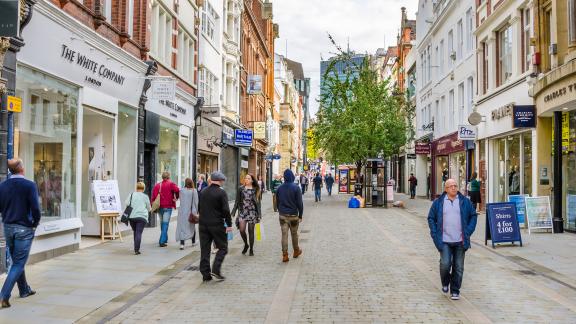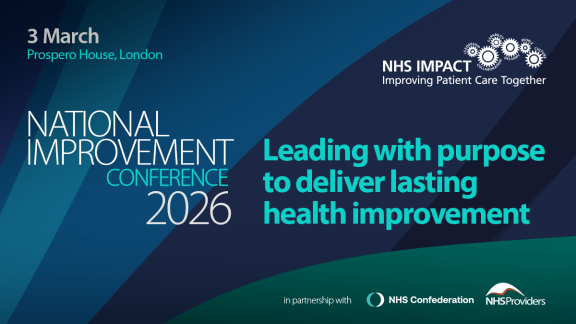How ICSs are supporting the wider economy - four case studies

The NHS is not just where people are treated for illness: it is often the biggest employer in a locality, it purchases from both large and small companies, and its actions have significant and lasting influence on the local economy. Right across the country it is seen as an anchor institution, and many are concerned to maximise its positive impact in making people both better and better off.
When integrated care systems were established, they were given four aims, one of which was supporting broader social and economic development. Many have acted on this, with for example schemes to help people into work, to utilise social value in support of local businesses and to address the issue of high streets losing footfall and vitality as traditional shops close.
High street locations in particular offer a way to reach people who would struggle to get to hospitals and capitalise on existing public transport services. But there are wider benefits for the NHS as well. It can tap into a cohort of people who might never have thought of applying to work for it while “health on the high street” can decompress hospital sites and offer opportunities to get across additional health messages.
Lancashire and South Cumbria - WorkWell initiative
Unemployment is a key contributor to poorer health outcomes but many people who are unemployed face barriers to their return, some of which are health-related. Overcoming these could boost both employment and health outcomes.
15 ICS areas are piloting a government employment support programme, aimed at those with health-related barriers to work who are either unemployed or at risk of falling out of work.
This “WorkWell” model is based at neighbourhood level and will involve integrated neighbourhood teams. The initial focus will be on areas such as musculoskeletal or mental health conditions – these are known to be common conditions which can lead to long-term sickness and economic inactivity.
The scheme will offer personalised support from a “work and health coach” who will work with the individual on understanding the health and social barriers preventing them from working and develop plans to get them into work. This intensive support will be offered as soon as possible. Support can include physiotherapy and counselling.
The pilots will last for two years and are expected to cost around £64m. Entering the scheme is optional for people who meet the criteria and there is no cost to them.
Barnsley - Health on the High Street
Putting health services on the high street can make them more accessible to patients but can also have benefits for town centres which are struggling with falling footfall and empty premises.
In Barnsley, a health and wellbeing hub which will host outpatient appointments previously seen at Barnsley Hospital is being set up on the first floor of the Alhambra shopping centre. Barnsley already has a community diagnostic centre in The Glass Works which opened in April 2022 and has provided over 220,000 appointments. It has seen do not attend rates drop by a quarter and more women come forward for mammograms.
The planned hub will be the UK’s largest relocation of hospital outpatient services and could redirect 100,000 annual visits from Barnsley Hospital to the town centre, easing parking problems at the hospital. The hub will host some mental health services and will also have a gym and wellbeing centre. Ophthalmology services will be some of the first to move in, followed by other outpatient services with the aim of being fully operational by 2028.
But the centre of Barnsley will also benefit as people visiting the CDC and hub will spend money in shops and boost the local economy.
Birmingham and Solihull - improving recruitment pathways
The NHS is one of the country’s largest employers and offers a plethora of different job roles and opportunities. But even so it can be difficult to reach those who are not in education, employment or training, whose life prospects can sometimes look bleak.
Birmingham and Solihull Integrated Care Board set out to make recruitment pathways more inclusive of this group and others who are from economically disadvantaged areas.
Its “I can” programme focused on health and care roles which offered them opportunities and could unlock talent – and would therefore benefit the NHS as well. It includes a training programme plus support through applications and interview preparation, with some guaranteed interviews.
If an applicant is appointed, there is then ongoing pastoral support.
Employers benefit from having applicants who are pre-screened and job-ready, with an understanding of the roles they are applying for and what are the required values and behaviours for working in the NHS.
North West - getting refugee doctors into work
Refugees and asylum seekers are often some of the most vulnerable people in our society but are sometimes portrayed as being a drain on the public purse.
But many of them have skills which are in demand and could benefit the societies they live in – but may not be recognised by regulatory authorities or allow them to work in the UK. Getting these healthcare professionals back to work not only benefits them, it may help the local community by ensuring there are sufficient healthcare staff to fill vacancies.
In the North West, a long-running scheme has helped refugees and asylum seekers gain registration with the General Medical Council and the Nursing and Midwifery Council. This support can include developing proficiency in English, understanding how the healthcare system works and gaining placements in the local NHS.



